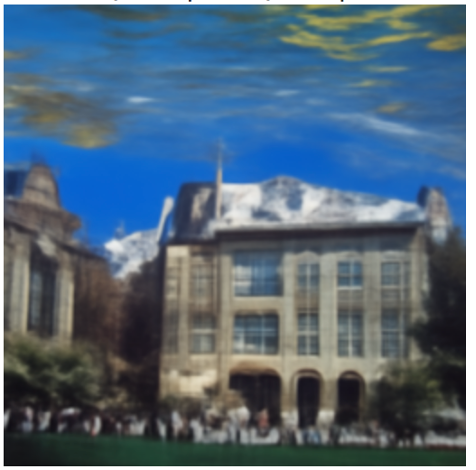▒▓▓▓▓▓▓▒▒▒▒▒▒▒▒▒▒▒░░░░░░░▒▒▒▒▒▒▒▒▒▒▒▒▒▒▒▒▒▒▒▒▒▒▒▒▒▒▒▒▒▒▒▒▒▒▒▒▒▒▒▒▒▒▒▒▒▒▒▒▒▒▒▒▒▒▒▒▒▒▒▒▒▒▒▒▒▓▓▓▓▓▓▒▒▒▒▒▒▒▒▒▒▒░ ░░░░░░░░░░░░░░░░░░░░ ░░░░░░░░░░░░░▒▒▒▒▒▒▒▒▒▒▒▒▒▒▒▒▒▒▒▒▒▒▒▒▒▒▒▒▒▒▒▒▒▒▒▒▒▒▒▒▒▒▒▒▒▒▒▒▒▒▒▒▒▒▒▒▒▒▒▒▒▒▒░
▒▓▓▓▓▓▒▒▒▒▒▒▒▒▒▒▒▒▒▒▒▒░░░▒▒▒▒▒▒▒▒▒▒▒▒▒▒▒▒▒▒▒▒▒▒▒▒▒▒▒▒▒▒▒▒▒▒▒▒▒▒▒▒▒▒▒▒▒▒▒▒▒▒▒▒▒▒▒▒▒▒▒▒▒▒▒▒▓▓▓▓▓▓▓▒▒▒▒░░░░▒▒▒░ ░░░░░░░░░░░░░░░░░░░░░░ ░░░░░░░░░░░░░░▒▒▒▒▒▒▒▒▒▒▒▒▒▒▒▒▒▒▒▒▒▒▒▒▒▒▒▒▒▒▒▒▒▒▒▓▓▒▒░░▒▒▒▒▒▒▒▒▒▒▒▒▒▒▒░
▒▓▓▓▓▓▒▒▒▒▒░░░░░░▒▒▒▒▒▒▒▒▒▒▒▒▒▒▒▒▒▒▒▒▒▒▒▒▒▒▒▒▒▒▒▒▒▒▒▒▒▒▒▒▒▒▒▒▒▒▒▒▒▒▒▒▒▒▒▒▒▒▒▒▒▒▒▒▒▒▒▒▒▒▒▒▓▓▓▓▓▒▒▒▒▒░░░░░▒▒▒░ ░░░░░░░░░░░░░░░░░▒▒░░░ ░░░░░░░░░░░░░░░░░░░░▒▒▒▒▒▒▒▒▒▒▒▒▒▒▒▒▒▒▒▒▒▒▒▒▒▒▒▓▓▒▒▒░░░░▒▒▒▒▒▒▒▒▒▒▒▒▒░
▒▒▒▒▒▒▒▒▒▒░░░░░░░░░░▒▒▒▒▒▒▒▒▒▒▒▒▒▒▒▒▒▒▒▒▒▒▒▒▒▒▒▒▒▒▒▒▒▒▒▒▒▒▒▒▒▒▒▒▒▒▒▒▒▒▒▒▒▒▒▒▒▒▒▒▒▒▒▒▒▒▒▒▒▓▓▓▓▓▒▒▒▒░░░░░░▒▒▒░ ░░░░░░░░░░░░░░░░░░░░ ░░░░░░░░░░░░░░░░░░░░░░░░▒▒▒▒▒▒▒▒▒▒▒▒▒▒▒▒▒▒▒▒▒▒▒▓▓▒▒▒░░░░░▒▒▒▒▒▒▒▒▒▒▒▒░
▒▒▒▒▒▒▒▒▒▒░░░░░░░░░░▒▒▒▒▒▒▒▒▒▒▒▒▒▒▒▒▒▒▒▒▒▒▒▒▒▒▒▒▒▒▒▒▒▒▒▒▒▒▒▒▒▒▒▒▒▒▒▒▒▒▒▒▒▒▒▒▒▒▒▒▒░░░░▒▒▒▓▓▓▓▓▓▒▒░░░░░░░▒▒▒▒░ ░░░░░░ ░░░░░░▒▒░░░ ░░░░░░░░░░░░░░░░░░░░░░░░░▒▒▒▒▒▒▒▒▒▒▒▒▒▒▒▒▒▒▒▒▓▓▓▒▒░░░░░░░░▒▒▒▒▒▒▒▒▒▒░
▒▒░░▒▒▒▒▒▒░░░░░░░░░░░▒▒▒▒▒▒▒▒▒▒▒▒▒▒▒▒▒▒▒▒▒▒▒▒▒▒▒▒▒▒▒▒▒▒▒▒▒▒▒▒▒▒▒▒▒▒▒▒▒▒▒▒▒▒▒▒▒▒▒▒░░ ░░▒▒▓▓▓▓▓▓▒▒░░░░░░░▒▒▒▒░ ░░░░░░ ░░░░░░░▒░░░ ░░░░░░░░░░░░░░░ ░░░░░░░░░░░░░░░░░░░░▒▒▒▒▒▒▒▒▒▒▓▓▓▒▒░░░░░░░░░▒▒▒▒▒▒▒▒▒░
▒▒▒▒▒▒▒▒▒▒▒▒▒░░░░░░░░░░░▒▒▒▒▒▒▒▒▒▒▒▒▒▒▒▒▒▒▒▒▒▒▒▒▒▒▒▒▒▒▒▒▒▒▒▒▒▒▒▒▒▒▒▒▒▒▒▒▒▒▒▒▒▒▒▒░░ ░▒▒▓▓▓▓▓▓▒▒░░░░░░▒▒▒▒▒░ ░░░░░░ ░░░░░░░░ ░░░░░░░░░░░▒░░░░ ░░░░░░░░░░░░░░░ ░░░░▒▒▒▒▒▒▒▓▓▓▒▒░░░░░░░░░░▒▒▒▒▒▒▒▒░
▒▒▒▒▒▒▒▒▒▒▒▒▒▒░░░░░░░░░░░▒▒▒▒▒▒▒▒▒▒▒▒▒▒▒▒▒▒▒▒▒▒▒▒▒▒▒▒▒▒▒▒▒▒▒▒▒▒▒▒▒▒▒▒▒▒▒▒▒▒▒▒▒▒▒░ ░▒▒▓▓▓▓▓▓▒▒░░░░░░▒▒▒▒▒░ ░░░ ░░░░░░░░ ░░░░░░░░░░░░░░░░░░░░░░░░░░░░░░░░░ ░░░░░░░▒▒▓▒▒▒░░░░░▒░░░░▒▒▒▒▒▒▒▒░
▒▒▒▒▒▓▒▒▒▒▒▒▒▒▒▒▒▒▒░░░░░░░▒▒▒▒▒▒▒▒▒▒▒▒▒▒▒▒▒▒▒▒▒▒▒▒▒▒▒▒▒▒▒▒▒▒▒▒▒▒▒▒▒▒▒▒▒▒▒▒▒▒▒▒▒▒░ ░▒▒▓▓▓▓▓▓▒░░ ░░▒▒▒▒▒▒▒░ ░░░ ░░ ░░░░░░░░ ░░░ ░░░░░░░░░░░░░░░░░░░░░░░ ░░▒▒▒▒▒▒▒░░░░▒▒░░░▒▒▒▒▒▒▒▒░
▒▒▒▒▒▒▒▒▒▒▒▒▒▒▒▒▒▒▒▒▒░░░░░▒▒▒▒▒▒▒▒▒▒▒▒▒▒▒▒▒▒▒▒▒▒▒▒▒▒▒▒▒▒▒▒▒▒▒▒▒▒▒▒▒▒▒▒▒▒▒▒▒▒▒▒▒▒░ ░▒▒▓▓▓▓▓▓▒░░ ░▒▒▒▒▒▒▒▒░ ░░░░ ░░░ ░░░▒▒░░░ ░░░░░░░ ░░░ ░▒▒▒▒▒▒░░░░░░░░░▒▒▒▒▒▒▒▒░
▒▒▒▒▒▒▒▒▒▒▒▒▒▒▒▒▒▒▒▒▒▒▒▒░░▒▒▒▒▒▒▒▒▒▒▒▒▒▒▒▒▒▒▒▒▒▒▒▒▒▒▒▒▒▒▒▒▒▒▒▒▒▒▒▒▒▒▒▒▒▒▒▒▒▒▒▒▒░░ ░▒▒▓▓▓▓▓▓▓▒░░░░▒▒▒▒▒▒▒▒░░░▒░░ ░ ░░░ ░░░░░░░ ░░░▒▒░░░░░░░░░░░░░▒▒▒▒▒▒▒░
▒▒▒▒▒▒▒▒▒▒▒▒▒▒▒▒▒▒▒▒▒▒▒▒▒▒▒▒▒▒▒▒▒▒▒▒▒▒▒▒▒▒▒▒▒▒▒▒▒▒▒▒▒▒▒▒▒▒▒▒▒▒▒▒▒▒▒▒▒▒▒▒▒▒▒▒▒▒▒░ ░▒▒▓▓▓▓▓▓▓▒░░░░▒▒▒▒▒▒▒░░░░▒░░ ░░░░░░░░░ ░░░░░ ░░░░░░░░░░░░░░░░░░░░░░░░░▒▒▒▒▒▒░
▒▒▒▒▒▒▒▒▒▒▒▒▒▒▒▒▒▒▒▒▒▒▒▒▒▒▒▒▒▒▒▒▒▒▒▒▒▒▒▒▒▒▒▒▒▒▒▒▒▒▒▒▒▒▒▒▒▒▒▒▒▒▒▒▒▒▒▒▒▒▒▒▒▒▒▒▒▒▒░ ░▒▒▒▓▓▓▓▓▓▓▒░░░░░▒▒▒▒▒▒░ ░░░ ░░░▒▒▒▒░░░░░ ░░░░░░░░░░░░░░░░░░░░░░░░░░▒▒▒▒▒▒░
▒▒▒▒▒▒▒▒▒▒▒▒▒▒▒▒▒▒▒▒▒▒▒▒▒▒▒▒▒▒▒▒▒▒▒▒▒▒▒▒▒▒▒▒▒▒▒▒▒▒▒▒▒▒▒▒▒▒▒▒▒▒▒▒▒▒▒▒▒▒▒▒▒▒▒▒▒▒▒░ ░▒▒▒▒▓▓▓▓▓▓▒▒░░░░░▒▒▒▒▒▒░ ░░ ░▒▒▒▒▒▒▒▒░░░░ ░ ░░░░░░░░ ░░░░░░░░░░░░░░░░░░░░░░░░░░░▒▒▒▒▒▒░
▒▒▒▒▒▒▒▒▒▒▒▒▒▒▒▒▒▒▒▒▒▒▒▒▒▒▒▒▒▒▒▒▒▒▒▒▒▒▒▒▒▒▒▒▒▒▒▒▒▒▒▒▒▒▒▒▒▒▒▒▒▒▒▒▒▒▒▒▒▒▒▒▒▒▒▒▒▒░░ ░░▒▒▒▒▓▓▓▓▓▓▒▒░░░░▒▒▒▒▒▒▒░ ░░ ░▒▒▒▒▒▒▒░░░░░░ ░░░░░░░░░░░░ ░░░░▒░░░░░░ ░░░░░░░░░░░░░░░▒▒▒▒▒░
▒▒▒▒▒▒▒▒▒▒▒▒▒▒▒▒▒▒▒▒▒▒▒▒▒▒▒▒▒▒▒▒▒▒▒▒▒▒▒▒▒▒▒▒▒▒▒▒▒▒▒▒▒▒▒▒▒▒▒▒▒▒▒▒▒▒▒▒▒▒▒▒▒▒▒▒▒▒░ ░▒▒▒▒▒▓▓▓▓▓▓▒▒▒▒▒▒▒▒▒▒▒▒▒░░ ░ ░░░░░░░░░▒▒▒░░░ ░░░░░░░ ░░░▒▒░░░░░░░░ ░░░▒░░░░░░░░░░░░░▒▒▒▒░
▓▒▒▒▒▒▒▒▒▒▒▒▒▒▒▒▒▒▒▒▒▒▒▒▒▒▒▒▒▒▒▒▒▒▒▒▒▒▒▒▒▒▒▒▒▒▒▒▒▒▒▒▒▒▒▒▒▒▒▒▒▒▒▒▒▒▒▒▒▒▒▒▒▒▒▒▒▒░ ░▒▒▒▒▒▓▓▓▓▓▓▒▒▒▒▒▒▒▒▒▒▒░░░░ ░░ ░░░░░░░░░░░░░░ ░░░░░░░░░ ░░░░░▒▒▒░░░░░░░░░▒▒▒░░░░ ░░░░░░░▒▒▒▒░
▓▓▓▓▒▒▒▒▒▒▒▒▒▒▒▒▒▒▒▒▒▒▒▒▒▒▒▒▒▒▒▒▒▒▒▒▒▒▒▒▒▒▒▒▒▒▒▒▒▒▒▒▒▒▒▒▒▒▒░░▒▒▒▒▒▒▒▒▒▒▒▒▒▒▒▒▒░ ░▒▒▒▒▒▒▓▓▓▓▓▓▒▒▒▒▒▒▒▒▒▒░░ ░░ ░░░░░░░ ░░░░░░░░░░░░░░░░░░░░░░░░░░░░░░░░░░░░░░░░▒▒▒▒▒▒▒▒▒▒▒▒▒▒▒▒▒▒▒▒░░░ ░░░░░▒▒▒▒▒░
▓▓▓▓▓▓▓▒▒▒▒▒▒▒▒▒▒▒▒▒▒▒▒▒▒▒▒▒▒▒▒▒▒▒▒▒▒▒▒▒▒▒▒▒▒▒▒▒▒▒▒▒▒▒▒▒▒▒░░░▒▒▒▒▒▒▒▒▒▒▒▒▒▒▒▒░░ ░▒▒▒▒▒▒▓▓▓▓▓▓▒▒▒▒▒▒▒▒▒▒░ ░░ ░░░░░░░░░░░░░░░░░░░░░░░░░░░▒▒▒▒▒░░░▒▒▒▒▒▒▒▒▒▒▒▒▒▒▒▒▒▒▒▒▒▒▒▒▒▒▒▒▒▓▒▒▒▒▒▒░░░░ ░░░░▒▒▒▒▒▒░
▓▓▓▓▓▓▓▓▓▒▒▒▒▒▒▒▒▒▒▒▒▒▒▒▒▒▒▒▒▒▒▒▒▒▒▒▒▒▒▒▒▒▒▒▒▒▒▒▒▒▒▒▒▒▒▒▒▒░░░▒▒▒▒▒▒▒▒▒▒▒▒▒▒▒▒░ ░▒▒░▒▒▒▓▓▓▓▓▓▒▒▒▒▒▒▒▒▒░░ ░░ ░░░░░░░░ ░░░░░░░░░░░░░░░░░░░░░░░░░░░▒▒▒▒░░▒▒▒▒▒▒▒▒▒▒▒▒▒▒▒▒▒▒▒▒▒▒▒▒▒▒▒▒▒▒▒▒▒▒▒▓▓▓▓▓▓▓▒▒▒▒▒▒▒░░░░░░░░░░▒▒▒▒▒▒░
▓▓▒▒▒▓▓▓▓▓▒▒▒▒▒▒▒▒▒▒▒▒▒▒▒▒▒▒▒▒▒▒▒▒▒▒▒▒▒▒▒▒▒▒▒▒▒▒▒▒▒▒▒▒▒▒░░░░░▒▒▒▒▒▒▒▒▒▒▒▒▒░░░░ ▒▒▒░▒▒▒▓▓▓▓▓▓▒▒▒▒▒▒▒▒▒░░ ░░░░░░░░░░░░░░░░░░░░░░░░░░░░░░░░░▒▒▒▒▒▒▒▒▒▒▒▒▒▒▒▒▒▒▒▒▒▒▒▒▒▒▒▒▒▒▒▒▒▒▓▓▓▓▓▓▓▓▓▓▓▓▓▓▓▓▓▓▓▓▓▓▓▓▓▓▓▓▓▒▒▒▒▒▒▒▒▒░░░░░░░▒▒▒▒▒▒▒▒░
▒▒▒▒▒▒▓▓▓▓▓▓▒▒▒▒▒▒▒▒▒▒▒▒▒▒▒▒▒▒▒▒▒▒▒▒▒▒▒▒▒▒▒▒▒▒▒▒▒▒▒▒▒▒▒▒░░░░░▒▒▒▒▒░░░░░░░░░░░ ░▒▒▒░░▒▒▓▓▓▓▓▓▒▒▒▒▒▒▒▒░░░ ░░░░░░▒▒▒▒▒▒▒▒▒▒▒▒▒▒▒▒▒▒▒▒▒▒▒▒▒▒▒▒▒▒▒▒▒▒▒▒▒▒▒▒▒▓▓▓▓▒▒▓▒▒▒▒▒▓▓▓▓▓▓▓▓▓▓▓▓▓▓▓▓▓▓▓▓▓▓▓▓▓▓▓▓▓▓▓▓▓▓▓▓▓▓▓▓▓▓▓▓▒▒▒▒▒▒▒▒░░░░░░░▒▒▒▒▒▒▒▒▒░
▒▒▒▒▒▒▒▒▓▓▓▓▓▓▒▒▒▒▒▒▒▒▒▒▒▒▒▒▒▒▒▒▒▒▒▒▒▒▒▒▒▒▒▒▒▒▒▒▒▒▒▒▒▒▒▒░░░░░░▒▒░░░░░░░░░░░░░ ░▒▒▒░░░▒▓▓▓▓▓▒▒▒▒▒▒▒▒▒░░░░░▒▒▒▒▒▒▒▒▒▒▒▓▓▓▓▓▓▓▓▓▓▓▓▓▓▓▓▓▓▓▓▓▓▓▓▓▓▓▓▓▓▓▓▓▓▓▓▓▓▓▓▓▓▓▓▓▓▓▓▓▓▓▓▓▓▓▓▓▓▓▓▓▓▓▓▓▓▓▓▓▓▓▓▓▓▓▓▓▓▓▓▓▓▓▓▓▓▓▓▓▓▓▒▒▒▒▒▒▒▒░░░░░░░▒▒▒▒▒▒▒▒▒░
▒▒▒▒▒▒▒▒▒▒▒▒▒▓▓▓▒▒▒▒▒▒▒▒▒▒▒▒▒▒▒▒▒▒▒▒▒▒▒▒▒▒▒▒▒▒▒▒▒▒▒▒▒▒▒▒▒░░░░░░░░ ░░░░░░░░ ░▒▒░░░░▒▓▓▓▒▒▒▒▒▒▒▒▒▒▒░░░░░▒▓▓▓▓▓▓▓▓▓▓▓▓▓▓▓▓▓▓▓▓▓▓▓▓▓▓▓▓▓▓▓▓▓▓▓▓▓▓▓▓▓▓▓▓▓▓▓▓▓▓▓▓▓▓▓▓▓▓▓▓▓▓▓▓▓▓▓▓▓▓▓▓▓▓▓▓▓▓▓▓▓▓▓▓▓▓▓▓▓▓▓▓▓▓▓▓▓▓▓▓▒▒▒▒▒▒▒▒▒░░░░░░░▒▒▒▒▒▒▒▒▒░
▒▒▒▒▒▒▒▒▒▒▒▒▒▒▒▒▒▒▒░░░▒▒▒▒▒▒▒▒▒▒▒▒▒▒▒▒▒▒▒▒▒▒▒▒▒▒▒▒▒▒▒▒░░▒▒░░░░░ ░░░░░ ░▒▒▒▒░░▒▒▓▓▓▒▒▒▒▒▒▒▒▒▒░░░░░▒▒▓▓▓▓▓▓▓▓▓▓▓▓▓▓▓▓▓▓▓▓▓▓▓▓▓▓▓▓▓▓▓▓▓▓▓▓▓▓▓▓▓▓▓▓▓▓▓▓▓▓▓▓▓▓▓▓▓▓▓▓▓▓▓▓▓▓▓▓▓▓▓▓▓▓▓▓▓▓▓▓▓▓▓▓▓▓▓▓▓▓▓▓▓▓▓▓▓▓▓▓▒▒▒▒▒▒▒▒▒░░░░░░░▒▒▒▒▒▒▒▒▒░
▒▒▒▒▒▒▒▒▒▒▒▒▒▒▒▒▒▒▒░░░▒▒▒▒▒▒▒▒▒▒▒▒▒▒▒▒▒▒▒▒▒▒▒▒▒▒▒▒▒░░░░░░░░░░ ░░░░ ░▒▒▒▒▒▒▒▓▓▓▓▓▓▒▒▒▒▒▒▒▒▒▒▒▒▒▒▒▓▓▓▓▓▓▓▓▓▓▓▓▓▓▓▓▓▓▓▓▓▓▓▓▓▓▓▓▓▓▓▓▓▓▓▓▓▓▓▓▓▓▓▓▓▓▓▓▓▓▓▓▓▓▓▓▓▓▓▓▓▓▓▓▓▓▓▓▓▓▓▓▓▓▓▓▓▓▓▓▒▒▓▓▓▓▓▓▓▓▓▓▓▓▓▓▓▓▓▒▒▒▒▒▒▒▒▒▒▒░░░░░░▒▒▒▓▒▒▒▒▒▒
▒▒▒▒▒▒▒▒▒▒▒▒▒▒▒▒▒▒░░░░░▒▒▒▒▒▒▒▒▒▒▒░░░░▒▒▒▒▒▒▒▒▒▒▒▒░░░░ ░░ ░ ░▒▒▒▒▒▒▓▓▓▓▓▓▓▓▓▓▓▓▓▒▒▒▒▒▒▓▓▓▓▓▓▓▓▓▓▓▓▓▓▓▓▓▓▓▓▓▓▓▓▓▓▓▓▓▓▓▓▓▓▓▓▓▓▓▓▓▓▓▓▓▓▓▓▓▓▓▓▓▓▓▓▓▓▓▒▒▒▒▒▒▒▒▒▒▒▒▒▒▒▒▒▒▒▒▒▒▒▒▒▒▒▒▒▒▒▓▓▓▓▓▓▓▓▓▓▓▒▒▒▒▒▒▒▒▓▓▒▒▒░░░░▒▒▒▓▓▒▒▒▒▒▒
▒▒▒▒▒▒▒▒▒▒▒▒▒▒▒▒▒░░░░░░░▒▒▒▒▒▒▒▒▒▒░░░░▒▒▒▒▒▒▒▒▒▒▒░░░░ ░░░░░░░░ ░▒▒▒▒▒▒▓▓▓▓▓▓▓▓▓▓▓▓▓▓▓▓▓▓▓▓▓▓▓▓▓▓▓▓▓▓▓▓▓▓▓▓▓▓▓▒▒▒▒▒▓▓▓▓▓▓▓▓▓▓▓▓▓▒▒▒▒▒▒▒▒▒▒▒▒▒▒▒▒▒▒▒▒▒▒▒▒▒▒▒▒▒▒▒▒▒▒▒▒▒▒▒▒▒▒▒▒▒▒▒▒▒▒▓▓▓▓▓▓▓▓▒▒▓▓▒▒▒▒▒▒▒▒▒▒▓▓▒▒▒▒▒▒▒▒▒▓▓▓▓▒▒▒▒▒
▒▒▒▒▒▒▒▒▒▒▒▒▒▒▓▒▒░░░░░░░░▒▒▒▒▒▒▒▒▒▒▒▒▒▒▒▒▒▒▒▒▒▒▒▒░░ ░░░░░░░ ░░▒▒▒▒▒▓▓▓▓▓▓▓▓▓▓▓▓▓▓▓▓▓▓▓▓▓▓▓▓▓▓▓▒▒▒▒▒▒▒▒▒▒▒▒▒▒▒▒▒▒▒▒▒▒▒▒▒▒▒▒▒▒▒▒▒▒▒▒▒▒▒▒▒▒▒▒▒▒▒▒▒▒▒▒▒▒▒▒▒▒▒▒▒▒▒▒▒▒▒▒▒▒▒▒▒▒▒▒▒▒▒▒▒▓▓▓▓▓▓▓▓▒▒▒▒▒▒▒▒▒▒▒▒▒▒▓▓▓▒▒▒▒▒▒▒▓▓▓▓▓▓▒▒▒▒
▒▒▒▒▒▒▒░░▒▒▒▒▒▓▓▒▒░░░░░░░░▒▒▓▓▓▓▒▒▒▒▒▒▒▒▒▒▒▒▒▒▒▒░░░ ░░ ░▒▒▓▒▒▒▒▒▒▒▒▒▒▒▒▒▒▒▒▒▒▒▓▓▓▓▓▓▓▓▓▒▒▒▒▒▒▒▒▒▒▒▒▒▒▒▒▒▒▒▒▒▒▒▒▒▒▒▒▒▒▒▒▒▒▒▒▒▒▒▒▒▒▒▒▒▒▒▒▒▒▒▒▒▒▒▒▒▒▒▒▒▒▒▒▒▒▒▒▒▒▒▒▒▒▒▒▒▒▒▒▒▒▓▓▓▓▓▓▓▓▒▒▒▒▒▒▒░░▒▒▒▒▒▓▓▓▓▒▒▒▒▒▒▓▓▓▓▓▓▒▒▒▒
▒▒▒▒▒▒░░░░▒▒▒▒▓▓▓▒▒░░░░░░░▒▒▒▓▓▓▓▓▓▒▒▒▒▒▒▒▒▒▒▒▒▒▒▒░ ░░░ ░▒▒▓▒░░ ░░░▒▒▒▒▒▒▒▒▒▒▒▓▒▓▒▒▒▒▒▒▒▒▒▒▒▒▒▒▒▒▒▒▒▒▒▒▒▒▒▒▒▒▒▒▒▒▒▒▒▒▒▒▒▒▒▒▒▒▒▒▒▒▓▓▒▒▒▒▒▒▒▒▒▒▒▒▒▒▒▒▒▒▒▒▒▒▒▒▒▒▒▒▒▒▒▒▒▒▒▒▒▒▒▒▒▒▒▒▒▒▒▒░░▒▒▒▒▒▓▓▓▓▓▓▒▒▒▓▓▓▓▓▓▓▒▒▒▒
▒▒▒▒▒▒▒░░░▒▒▒▒▓▓▓▓▒░░░░░░░▒▒▒▒▓▓▓▓▓▓▓▒▒▒▒▒▒▒▒▒▒▒▒▒░░░ ░░░░░ ░▒▓▓▒░ ░░▒▒▒▒▒▒▒▒▒▒▒▒▒▒▒▒▒▒▒▒▒▒▒▒▒▒▒▒▒▒▒▒▓▒▒▒▒▒▒▒▒▒▒▓▓▓▒▒▒▒▒▒▒▒▒▒▒▒▒▒▒▒▓▓▒▒▒▒▒▒▒▒▒▒▒▒▒▒▒▒▒▒▒▒▒▒▒▒▒▒▒▒▒▒▒▒▒▒▒▒▒▒▒▒▒▒▒▒▒▒▒▒▒▒▒▒▒▒▒▓▓▓▓▓▓▓▓▓▓▓▓▓▓▓▓▓▒▒▒
▒▒▒▒▒▒▒░░▒▒▒▒▒▓▓▓▓▓▒░░░░░░▒▒▒▒▒▒▓▓▓▓▓▓▓▓▓▒▒▒▒▒▒▒▒▒▒░░░ ░░░ ░▒▓▓▒░ ░▒▒▒▒▒▒▒▓▓▓▒▒▒▒▒▒▒▒▒▒▒▒▒▓▓▓▓▒▒▒▒▒▒▒▒▒▒▒▒▒▒▒▒▒▒▒▒▒▒▒▒▒▒▒▒▒▒▒░░▒▒▒▒▒▒▒▒▒▒▒▒▒▒▒▒░░░░░░░▒▒▒▒▒▒░▒░░░░▒▒▒░░░░░░░░▒▒▒▒▒▒░░▒▒▒▒▒▓▓▓▓▓▓▓▓▓▓▓▓▓▓▓▓▓▓▓▒
▒▒▒▒▒▒░░░▒▒▒▒▒▓▓▓▓▓▒▒░░░░░▒▒▒▒▒▒▒▓▓▓▓▓▓▓▓▓▓▒▒▒▒▒▒▒▒░░░░ ░░ ░▒▓▓▒░ ░▒▒▒▒▒▒▓▓▓▓▓▒▒▒▒▒▒▒▒▒▒▒▒▒▒▒▒▒▒▒▒▒▒▒▒▒▒▒▒▒▒▒▒▒▒▒▒▒░░░░▒▒▒░░░░░░░░▒▒▒▒░░░░░░░░░░░░░░░░░░▒▒░░░░░░░░░░░░░░░░░░░░░░░░░░░░▒▒▒▒▒▓▓▓▓▓▓▓▓▓▓▓▓▓▓▓▓▓▓▒
▒▒▒▒▒▒░░░▒▒▒▒▓▓▓▓▓▓▓▒▒▒▒▒▒▒▒▒▒▒▒▒▒▒▒▒▓▓▓▓▓▓▓▓▓▒▒▒▒▒░░░░ ░░░░ ░░░░ ░░▒▓▓▓▒░ ░░▒▒▒▒▒▒▒▒▒▒▒▒▒▒▒▒▒░░▒▒▒▒▒▒▒▒▒▒▒▒▒▒▒▒▒▒▒▒▒▒▒▒▒▒▒▒░░░░░░░░░░░░░░░░░░░░░░░░░░░░░░░░░░░░░░░░░░░░░░░░░░░░░░░░░░░░░░░░░░░░▒▒░▒▒▒▓▓▓▓▓▓▓▓▓▓▓▓▓▓▓▓▓▒
░▒▒▒▒░░░░░░▒▒▓▓▓▓▓▓▓▓▓▒▒▒▒▒▒▒▒▒░▒▒▒▒▒▒▓▒▓▓▓▓▓▓▓▓▒▒▒▒░░░ ░░░░░░ ░░░ ░░▒▒▓▓▓▒░░ ░░░░░░░░░░░░░░▒▒▒▒▒▒▒▒▒░░░░░▒▒▒▒▒▒▒▒▒▒▒▒▒▒▒▒▒▒▒▒▒▒▒▒▒▒▒░░░░░░░░░░░░░░░░░░░░ ░░░░░░░░░░░░░░░░░░░░░░░░░░░░░░░░░░░░░░░░░░░░░▒░░░▒▒▓▓▓▓▓▓▓▓▓▓▓▓▓▓▓▓▓▒
▒▒▒▒▒░░░░░░░▒▓▓▓▓▓▓▓▓▓▓▓▒▒▒▒▒▒▒▒▒▒▒▒▒▒▒▒▒▓▓▓▓▒▓▓▓▒▒▒▒░░ ░░░░░░ ░░░ ░▒▒▓▓▓▓▒░░░░░░░░░░░░░░░░░░▒▒▒▒▒▒░▒▒░░░░░░▒▒▒▒▒▒▒▒▒▒▒▒▒▒▒▒▒▒▒▒▒▒▒▒▒▒░░░░░░░░░░░░░░░░░░░░░ ░░░░░░░░░░░░░░░░░░░░░░░░░░░░░░░░░░░░░░░░░░░░░░▒▒░░▒▒▓▓▓▓▓▓▓▓▓▓▓▓▓▓▓▓▓▒
▒▒▒▒▒░░░░░░░▒▓▓▓▓▓▓▓▓▓▓▓▓▓▒▒▒▒▒▒▒▒▒▒▒▒▒▒▒▒▒▒▒▒▒▒▒▒▒▒▒░░░░░░░░░ ░░▒▒▒▒▒▓▓▓▓▒░░░░░░░░░░░░░░░░░░░▒▒▒▒▒░░▒░░░░░░▒▒▒▒▒▒▒▒▒▒▒▒▒▒▒▒▒▒▒▒▒▒▒▒▒░░░░░░░░░░░░░░░░░░░░░░░░░░░░░░░░░░░░░▒▒▒░░░░░░░░░░░░░░▒▒░▒▒░░▒▒▒▒░░░░▒▒░▒▒▓▓▓▓▓▓▓▓▓▓▓▓▓▓▓▓▓▓▒
▒▒▒▒▒░░░░░░░▒▓▓▓▓▓▓▓▓▓▓▓▓▓▓▒▒▒▒▒▒▒▒▒▒▒▒▒▒▒▒▒▒▒▒▒▒▒▒▒▒▒░░░░░░░ ░▒▒▒▒▒▒▓▓▓▓▓▒░░░░░░░░░░░░░░░░░░░░▒▒▒▒░▒▒░░░░░░▒▒▒▒▒▒▒▒▒▒▒▒▒▒▒▒▒▒▒▒▒▒▒▒▒░░░░░░░░░░░░░░░░░▒░░░░░░░░░░▒▒▒▒▒▒▒░▒▒▒▒▒░░░░░░░░░▒▒▒▒▒▒▒▒▒▒░▒▒▒▒░░░░░▒▒▒▒▓▓▓▓▓▓▓▓▓▓▓▓▓▓▓▓▓▓▒
▒▒▒▒▒░░░░░░░▒▓▓▓▓▓▓▓▓▓▓▓▓▓▓▒▒▒▒▒▒▒▒▒▒▒▒▒▒▒▒▒▒▒▒▒▒▒▒▒▒▒▒▒▒▒▒░ ░▒▒▒▓▓▒▒▓▓▓▓▓▒░░░░░░░░░░░░░░░░▒▒░▒▒▒▒▒▒▒▒░░░░░░░▒░░░▒▒▒▒▒▒▒▒▒▒▒▒▒▒▒▒▒▒▒▒░░░░░░░░░▒▒▒▒░░▒▒▒▒░░░░░░░░░▒▒▒▒▒▒▒░▒▒▒▒▒░░░░░░░░░▒▒▒▒▒▒▒▒▒▒░░▒▒▒░░░░░▒▒▒▒▓▓▓▓▓▓▓▓▓▓▓▓▓▓▓▓▓▓▓
▒▒▒▒▒░░░░░░░▒▓▓▓▓▓▓▓▓▓▓▓▓▓▓▒▒▒▒▒▒▒▒▒▓▓▒▒▒▒▒▒▒▒▒▒▒▒▒▒▒▒▒▒▒▒░░ ░▒▒▓▓▓▒▒▓▓▓▓▓▒░░░░░░░░░░░░░░░░▒░░░▒▒▒▒░▒▒░░░░░░░░░ ░░░░░░▒░░▒▒░▒▒▒▒▒▒▒░░░░░░░░░░░▒▒▒░░░▒▒▒▒░░░░░░░░░░▒▒▒▒▒░░░▒▒▒▒░░░░░░░░░▒▒▒▒▒░▒▒▒▒░░▒▒▒░░░░░▒▒▒▒▒▓▓▓▓▓▓▓▓▓▓▓▓▓▓▓▓▓▓
▒▒▒▒░░░░░░░░░▒▓▓▓▓▓▓▓▓▓▓▓▓▓▒▒▒░▒▒▒▒▒▓▓▒▒▒▒▒▒▒▒▒▒▒▒▒▒▒▒▒▒▒▒░░ ░▒▒▓▓▓▒▒▓▓▓▓▓▒▒░░░░░░░░░░░░░░░░░░░░░▒▒░▒▒░░░░░░░░ ░░░░░░░░░░░░▒▒▒▒▒░░░░░ ░░░░░▒▒▒░░░▒▒▒▒░░░░░░░░░░▒▒▒▒▒░░░▒▒▒▒░░░░░░░░░▒▒▒▒▒░▒▒▒▒░░▒▒░░░░░░▒▒▒▒▓▓▓▓▓▓▓▓▓▓▓▓▓▓▓▓▓▓▓
▒▒▒▒░░░░░░░░░▒▓▒▓▓▓▓▓▓▓▓▓▓▒▒▒▒░░░▒▒▒▓▓▒▒▒▒▒▒▒▒▒▒▒▒▒▒▒▒▒▒░░░ ░░░░░▒▒▓▓▓▒▓▓▓▓▓▓▒▒░░░░░░░░░░░░░░░░░░░░░▒░░▒▒░░░░░░ ░░░░░░░░░▒▒▒▒▒▒░░░░ ░░░░░░▒▒░░░░▒▒▒▒░░░░░░░░░░▒▒▒▒▒▒░▒▒▒▒▒░░░░░░░░░▒▒░▒░░░▒▒░░░▒▒▒░░░░▒▒▒▒▒▓▓▓▓▓▓▓▓▓▓▓▓▓▓▓▓▓▓▓
▒▒▒▒░░░░░░░░░▒▒▒▒▒▓▓▓▓▓▓▓▓▒▒▒░░░░░▒▒▓▓▓▒▒▒▒▒▒▒▒▒▒▒▒▒▒▒▒░░░ ░░░▒▒▒▒▒▓▓▓▓▓▓▓▓▓▓▓▒▒░░░░░░░░░░░░░░░░░░░░░▒▒░▒▒░░░░░░░░░ ░░░░░░░░░░▒▒▒▒▒▒▒░░░░░░░░░░░░░░░░▒▒▒▒░░░░░░░░░░▒▒▒▒▒▒░▒▒▒▒▒░░░░░░░░░▒▒░░░░░▒▒▒░░▒▒▒░░░░▒▒▒░▒▓▓▓▓▓▓▓▓▓▓▓▓▓▓▓▓▓▓▓
▒▒▒▒░░░░░░░░░▒▒▒▒▒▒▓▓▓▓▓▓▓▒▒▒░░░░░▒▒▓▓▓▒▒▒▒▒▒▒▒▒▒▒▒▒▒▒▒░░ ░░░▒▒▒▒▒▒▓▓▓▓▓▓▓▓▓▓▓▒▒░░░░░░░░░░░░▒░░░░░░▒▒▒▒░▒▒░░░░░░░░░ ░░░░░░░░░░░░░▒▒▒▒▒▒▒▒░░░░░░░░▒▒▒▒░░░▒▒▒▒░░░░░░░░░▒▒▒▒▒▒▒▒▒▒▒▒▒▒░░░░░░░░▒▒▒▒▒▒▒▒▒▒░▒▒▒▒░░░░▒▒░░▒▓▓▓▓▓▓▓▓▓▓▓▓▓▓▓▓▓▓▓
▒▒▒▒░░░░░░░ ░▒▒▒▒▒▒▓▓▓▓▓▓▓▒▒▒░░░░░▒▒▓▓▓▒▒▒▒▒▒▒▒▒▒▒▒▒▒▒▒░░░░ ░░░▒▒▒▒▒▓▓▓▓▓▓▓▓▓▓▓▓▓▒▒▒░░░░░░░░░░▒▒▒░▒▒░▒▒▒▒▒░▒▒░░░░░░░░░░░░░░░░▒▒░▒▒░▒▒▒▒▒▒▒▒▒▒░░░░░░░▒▒▒▒▒░▒▒▒▒▒░░░░░░░░░▒▒▒▒▒▒▒▒▒▒▒▒▒▒░░░░░░░░▒▒▒▒▒▒▒▒▒▒░▒▒▒▒░░░░▒▒░░▒▒▓▓▓▓▓▓▓▓▓▓▓▓▓▓▓▓▓▓
▒▒▒▒░░░░░░░ ░▒▒▒▒▒▒▓▓▓▓▓▓▓▒▒▒░░░░░▒▒▓▓▓▒▒▒▒▒▒▒▒▒▒▒▒▒▒▒▒▒░░░░░░▒▒▒▒▓▓▓▓▓▓▓▓▓▓▓▓▓▓▓▒▒░░░░░░░░░░░░░░░░░░░░▒▒▒░▒▒▒░░░░░░░░░░░░░░░▒▒▒▒▒▒▒▒▒▒▒▒▒▒▒▒░░░░░░░▒▒▒▒▒░▒▒▒▒▒░░░░░░░░░▒▒▒▒▒▒▒▒▒▒▒▒▒▒░░░░░░░░▒▒▒▒▒▒▒▒▒▒░▒▒▒▒░░░░▒▒░░▒▒▓▓▓▓▓▓▓▓▓▓▓▓▓▓▓▓▓▓
▒▒▒▒░░░░░░░ ░▒▒▒▒▒▒▓▓▓▓▓▓▓▒▒▒░░░░░▒▒▓▓▓▒▒▒▒▒▒▒▒▒▒▒▒▒▒▒▒▒▒▒▒▒░░▒▒▒▓▓▓▓▓▓▓▓▓▓▓▓▓▓▓▓▒░░░░░░░░░░░░░░░░░░░░░▒▒▒░▒▒▒░░░░░░░░░░░░░░░▒▒▒▒▒▒▒▒▒▒▒▒▒▒▒▒░░ ░░░░▒▒▒▒▒░▒▒▒▒▒░░░░░░░░░▒▒▒▒▒▒▒▒▒▒▒▒▒▒░░░░░░░░▒▒▒▒▒▒▒▒▒▒░░▒▒▒░░░░▒▒░░▒▒▓▓▓▓▓▓▓▓▓▓▓▓▓▓▓▓▓▓
▒▒▒▒░░░░░░░ ░▒▒▒▒▒▒▓▓▓▓▓▓▓▒▒▒░░░░░░▒▓▓▓▒▒▒▒▒▒▒▒▒▒▒▒▒▒▒▒▒▒▒▒▒▒▒▒▒▒▓▓▓▓▓▓▓▓▓▓▓▓▓▓▓▓▒░░░░░░░░░░░░▒▒░░░░░░░▒▒▒░▒▒▒░░░░░ ░░▒▒▒▒▒▒▒▒▒▒▒▒▒▒▒▒░░ ░░░░▒▒▒▒▒░▒▒▒▒▒░░░░░░░░░▒▒▒▒▒▒▒░▒▒▒▒▒░░░░░░░░░▒▒▒▒▒▒▒▒▒▒░░▒▒▒░░░░░▒░░▒▒▓▓▓▓▓▓▓▓▓▓▓▓▓▓▓▓▓▓
▒▒▒▒░░░░░░░ ░▒▒▒▒▒▒▓▓▓▓▓▓▒▒▒▒░░░░░░▒▓▓▓▒▒▒▒▒▒▒▒▒▒▒▒▒▒▒▒▒▒▒▒▒▒▒▒▒▒▓▓▓▓▓▓▓▓▓▓▓▓▓▓▓▓▒▒░░░░░▒░░░░░▒▒░░░░░░░▒▒▒░▒▒▒░░░░░░░░░░░░░░░▒▒▒▒▒▒▒▒▒▒▒▒▒▒▒▒░░ ░░░░░▒▒▒░░░▒▒▒▒░░░░░░░░░░▒░░░▒░░░░░▒▒░░░░░░░░░▒▒░░░░░░▒░░░▒▒░░░░░░░░░░▒▓▓▓▓▓▓▓▓▓▓▓▓▓▓▓▓▓▓
▒▒▒▒░░░░░░░ ░▒▒▒▒▒▒▓▓▓▓▓▓▒▒▒▒░░░░░░▒▓▓▓▒▒▒▓▒▒▒▒▒▒▒▒▒▒▒▒▒▒▒▒▒▒▒▒▒▒▓▓▓▓▓▓▓▓▓▓▓▓▓▓▓▒▒▒░░░░░▒░░░░░▒▒░░░░░░░▒▒▒░▒▒░░░░░░░░░░░░░░░▒▒▒▒▒▒▒▒▒▒▒▒▒▒▒▒▒░░ ░░░░░░▒▒░░░░▒▒▒░░░░░░░ ░░░░░░░░░░░░░░░░░▒▒░░░░░░░░░░░░░░░░▒▒▒░░░░▒░░░░▒▓▓▓▓▓▓▓▓▓▓▓▓▓▓▓▓▓▓
▒▒▒▒░░░░░░░░░▒▒▒▒▒▒▓▓▓▓▓▓▒▒▒░░░░░░░▒▓▓▓▒▒▓▓▓▒▒▒▒▒▒▒▒▒▒▒▒▒▒▒▒▒▒▒▒▒▓▓▓▓▓▓▓▓▓▓▓▓▓▓▓▒▒▒▒░░░▒▒░░░░░▒▒▒░▒▒░░▒▒▒▒░▒▒░░░░░░░░░░░░░░▒▒▒▒▒▒▒▒▒▒▒▒▒▒▒▒▒▒░░░░░░░░▒▒▒░░░▒▒▒▒░░░░░░░ ░░░░░░░░░░░░░░░░░▒▒▒░░░▒▒▒▒▒▒▒▒▒▒░▒▒▒▒░░░░▒▒░░░▒▓▓▓▓▓▓▓▓▓▓▓▓▓▓▓▓▓▓
▒▒▒▒░░░░░░░░░▒▒▒▒▒▒▓▓▓▓▓▓▒▒▒░░░░░░░▒▓▓▓▒▒▓▓▓▒▒▒▒▒▒▒▒▒▒▒▒▒▒▒▒▒▒▒▒▒▓▓▓▓▓▓▓▓▓▓▓▓▓▓▓▒▒▒░░░░▒▒░░░░░▒▒▒▒▒▒░░▒▒▒▒░▒▒░░░░░░░░░░░░░░▒▒▒▒▒▒▒▒▒▒▒▒▒▒▒▒▒▒░░░░░░░▒▒▒▒▒░▒▒▒▒▒░░░░░░░ ░░░▒▒▒▒░░▒▒▒▒▒░░░░▒░░░░▒▒▒▒▒▒▒▒▒▒▒▒▒▒▒░░░░▒▒▒▒▒▒▓▓▓▓▓▓▓▓▓▓▓▓▓▓▓▓▓▓
▒▒▒▒░░░░░░ ░▒▒▒▒▒▒▒▓▓▓▓▓▓▒▒▒░░░░░░░▒▓▓▓▓▓▓▓▓▒▒▒▒▓▒▒▒▒▒▒▒▒▒▒▒▒▒▒▒▒▓▓▓▓▓▓▓▓▓▓▓▓▓▓▓▒▒▒░░░░░▒░░░░░▒▒░░▒░░░▒▒▒▒░▒▒░░░░░░░░░▒▒▒░░▒▒▒▒▒▒▒▒▒▒▒▒▒▒▒▒▒▒░░░░░░░▒▒▒▒▒░░▒▒▒▒░░░░░░░ ░░▒▒▒▒▒░░▒▒▒▒▒░░░░░░░░░▒▒▒▒▒▒▒▒▒▒░▒▒▒▒░░░░▒▒▒▒▒▒▓▓▓▓▓▓▓▓▓▓▓▓▓▓▓▓▓▓
▒▒▒▒░░░░░░░░▒▒▒▒▒▒▒▓▓▓▓▓▓▒▒▒░░░░░░░▒▓▓▓▓▓▓▓▓▒▒▒▓▓▒▒▒▒▓▓▒▒▒▒▒▒▒▓▓▓▓▓▓▓▓▓▓▓▓▓▓▓▓▓▓▒▒░░░░░░░░░░░░▒▒▒░░░░░▒▒▒▒░▒▒░░░░░░░░▒▒▒▒▒▒▒▒▒▒▒▒▒▒▒▒▒▒▒▒▒▒▒▒░░░░░░▒▒▒▒▒▒░▒▒▒▒▒░░░░░░░ ░░░░▒▒░░░▒▒▒▒▒░░░▒▒░░░░▒▒▒▒▒▒▒▒▒▒░▒▒▒▒░░░░░▒▒▒▒▒▓▓▓▓▓▓▓▓▓▓▓▓▓▓▓▓▓▓
▒▒▒▒░░░░░░░░▒▒▒▒▒▒▒▓▓▓▓▓▓▒▒▒░░░░░░░▒▓▓▓▓▓▓▓▓▓▒▓▓▓▓▒▒▒▒▒▒▒▒▒▒▒▒▓▓▓▓▓▓▓▓▓▓▓▓▓▓▓▓▓▓▒▒░░░░░░░░░░░░▒▒░░░░░░░▒▒▒░▒▒░░░░░░░░░░░░░░░░░░░░░░░░░░░░░░░░░░░░░░▒▒▒▒▒▒░▒▒▒▒▒░░░░░░░░░░▒▒▒▒▒░░▒▒▒▒▒░░░▒░░░░░▒▒▒▒▒▒▒▒▒▒░▒▒▒▒░░░░░▒▒▒▒▓▓▓▓▓▓▓▓▓▓▓▓▓▓▓▓▓▓▓
▒▒▒▒░░░░░░░░▒▒▒▒▒▒▒▓▓▓▓▓▓▒▒▒░░░░░ ░▒▓▓▓▓▓▓▓▓▓▓▓▓▓▓▒▒▒▒▒▒▒▒▒▒▒▓▓▓▓▓▓▓▓▓▓▓▓▓▓▓▓▓▓▓▒▒░░░░░░░░░░░░░░░░░░░░░▒▒▒▒▒▒▒░░░░░░░ ░░░░░░░░░░ ░░░▒▒▒▒░░▒▒▒▒▒░░░░░░░░░░░▒▒▒▒░░▒▒▒▒▒░░░░░░░░░▒▒▒▒▒▒▒▒▒▒░▒▒▒▒░░░░░▒▒▒▓▓▓▓▓▓▓▓▓▓▓▓▓▓▓▓▓▓▓▓
▒▒▒▒░░░░░░░░▒▒▒▒▒▒▒▓▓▓▓▓▓▒▒▒░░░░░ ░▒▓▓▓▓▓▓▓▓▓▓▓▓▓▓▒▒▒▒▒▒▒▒▒▒▒▓▓▓▓▓▓▓▓▓▓▓▓▓▓▓▓▓▓▓▒▒▒░▒▒░▒░░░░░░░░░░░░░░░▒▒▒▒▒▒▒░░░░░░░░░░░░░░░░░░░░░░░░░░░░░░░░░ ░░░░▒▒▒░░▒▒▒▒▒░░░░░░░ ░░░░░░░░░▒▒▒▒▒░░░░░░░░░▒▒▒▒▒▒▒▒▒▒▒▒▒▒▒▒░░░▒▒▒▓▓▓▓▓▓▓▓▓▓▓▓▓▓▓▓▓▓▓▓▓
▒▒▒▒░░░░░░░░▒▒▒▒▒▒▒▓▓▓▓▓▓▒▒▒░░░░░░░▒▓▓▓▓▓▓▓▓▓▓▓▓▓▓▒▒▒▒▒▒▒▒▒▒▓▓▓▓▓▓▓▓▓▓▓▓▓▓▓▓▓▓▓▓▒▒▒▒▒▒▒▒░░░░░░▒▒░░░░░░░▒▒▒▒▒▒▒░░░░░░░░░░░░░░░░░░░░░░░░░░░░░░░░░░░░░░░▒▒▒░░▒▒▒▒▒░░░░░░░░░░▒▒▒▒▒░▒▒▒▒▒▒▒░░░░▒▒▒▒▒▒▒▒▒▒▒▒▒▒▒▒▒▒▒▒░░▒▒▒▒▓▓▓▓▓▓▓▓▓▓▓▓▓▓▓▓▓▓▓▓▓
▒▒▒▒░░░░░░░░▒▒▒▒▒▒▓▓▓▓▓▓▓▒▒▒░░░░░░░▓▓▓▓▓▓▓▓▓▓▓▓▓▓▓▓▒▒▒▒▒▒▒▒▓▓▓▓▓▓▓▓▓▓▓▓▓▓▓▓▓▓▓▓▓▒▒▒▒▒▒▒▒▒░░░░▒▒▒▒░▒░░░▒▒▒▒▒▒▒▒░░░░░░░░░░░░░░░░░░░░░░░░░░░░░░░░░░░░░░▒▒▒▒▒░▒▒▒▒▒░░░░░░░░░▒▒▒▒▒▒▒▒▒▒▒▒▒▒░░░░░▒▒▒▒▒▒▒▒▒▒▒▒▒▒▒▒▒▒▒▒▒▒▒▒▒▓▓▓▓▓▓▓▓▓▓▓▓▓▓▓▓▓▓▓▓▓
▒▒▒▒░░░░░░░░▒▒▒▒▒▒▓▓▓▓▓▓▓▒▒▒░░░░░░▒▓▓▓▓▓▓▓▓▓▓▓▓▓▓▓▓▓▒▒▒▒▒▒▒▓▓▓▓▓▓▓▓▓▓▓▓▓▓▓▓▓▓▓▓▓▒▒▒▒▒▒▒▒▒░░░░▒▒▒▒▒▒▒░▒▒▒▒▒▒▒▒▒░░░░░░░░░░░░░░░░░░░░░░░░░░░░░░░░░░░░░▒▒▒▒▒▒▒▒▒▒▒▒░░░░░░░░░▒▒▒▒▒▒▒▒▒▒▒▒▒▒░░░░░▒░▒▒▒▒▒▒▒▒▒▒▒▒▒▒▒▒▒▒▒▒▒▒▒▓▓▓▓▓▓▓▓▓▓▓▓▓▓▓▓▓▓▓▓▓
▒▒▒▒░░░░░░░░▒▒▒▒▒▒▓▓▓▓▓▓▓▒▒▒░░░░░░▒▓▓▓▓▓▓▓▓▓▓▓▓▓▓▓▓▓▒▒▒▒▒▒▒▓▓▓▓▓▓▓▓▓▓▓▓▓▓▓▓▓▓▓▓▓▒▒▒▒▒▒▒▒▒░░░▒▒▒▒▒▒▒▒▒▒▒▒▒▒▒▒▒▒░░░░░░░░░░░░░░░░░░░░░░░░▒▒░░░░░░░ ░░▒▒▒▒▒▒▒▒▒▒▒▒░░░░░░░░░▒▒▒▒▒▒▒▒▒▒▒▒▒▒▒▒░▒▒▒▒▒▒▒▒▒▒▒▒▒▒▒▒▒▒▒▒▒▒▒▒▒▒▒▓▓▓▓▓▓▓▓▓▓▓▓▓▓▓▓▓▓▓▓▓
▒▒▒▒░░░░░░░░▒▒▒▒▒▒▓▓▓▓▓▓▓▒▒▒░░░░░░▒▓▓▓▓▓▓▓▓▓▓▓▓▓▓▓▓▓▓▒▒▒▒▒▒▓▓▓▓▓▓▓▓▓▓▓▓▓▓▓▓▓▓▓▓▓▒▒▒▒▒▒▒▒▒░░░▒▒▒▒▒▒▒▒▒▒▒▒▒▒▒▒▒▒░░░░░░░▒▒▒▒▒▒▒▒▒▒▒░░▒▒▒▒▒▒▒▒░░░░░ ░░▒▒▒▒▒▒▒▒▒▒▒▒░░░░░░░ ░▒▒▒▒▒▒▒▒▒▒▒▒▒▒▒░░░░░░▒▒▒▒▒▒▒▒▓▒▒▒▒▒▒▒▒▒▒▒▒▒▒▒▓▓▓▓▓▓▓▓▓▓▓▓▓▓▓▓▓▓▓▓
▒▒▒▒░░░░░░░░▒▒▒▒▒▒▓▓▓▓▓▓▓▒▒▒░░░░░░▒▓▓▓▓▓▓▓▓▓▓▓▓▓▓▓▓▓▓▒▒▒▒▒▒▓▓▓▓▓▓▓▓▓▓▓▓▓▓▓▓▓▓▓▓▓▒▒▒▒▒▒▒▒▒▒░░▒▒▒▒▒▒▒▒▒▒▒▒▒▒▒▒▒▒░░░░░░▒▒▒▒▒▒▒▒▒▒▒▒▒▒▒▒▒▒▒▒▒▒░░░░░ ░░▒▒▒▒▒▒▒▒▒▒▒▒░░░░░░░ ░▒▒▒▒▒▒▒▒▒▒▒▒▒▒▒░░░░░░▒▒▒▒▒▒▒▒▒▒▒▒▒▒▒▒▒▒▒▒▒▒▒▒▒▓▓▓▓▓▓▓▓▓▓▓▓▓▓▓▓▓▓▓
▒▒▒▒░░░░░░░░▒▒▒▒▒▒▓▓▓▓▓▓▓▒▒▒░░░░░░▒▓▓▓▓▓▓▓▓▓▓▓▓▓▓▓▓▓▓▒▓▓▒▒▒▓▓▓▓▓▓▓▓▓▓▓▓▓▓▓▓▓▓▓▓▓▒▒▒▒▒▒▒▒▒▒░░▒▒▒▒▒▒▒▒▒▒▒▒▒▒▒▒▒░░░░░░▒▒▒▒▒▒▒▒▒▒▒▒▒▒▒▒▒▓▓▓▓▓▓▒░░░░ ░░▒▒▓▓▓▒▒▒▓▓▓▒░░░░░░░░░▒▒▒▒▒▒▒▒▒▒▓▒▒▒░░░░▒▒▒▒▒▒▒▒▒▒▒▓▒▒▒▒▒▒▒▒░░▒▒▒▒▒▒▓▓▓▓▓▓▓▓▓▓▓▓▓▓▓▓▓▓▓
▒▒▒░░░░░░░░░▒▓▒▒▒▒▓▓▓▓▓▓▓▒▒▒░░░░░░▒▓▓▓▓▓▓▓▓▓▓▓▓▓▓▓▓▓▒▒▓▓▒▒▓▓▓▓▓▓▓▓▓▓▓▓▓▓▓▓▓▓▓▓▓▓▓▒▒▒▒▒▒▒▒░░░▒▒▒▒▒▒▒▒▒▒▒▒▒▒▒▒▒░░░░░░░▒▓▓▓▓▓▓▓▓▓▓▓▓▒▒▒▓▓▓▓▓▓▒░░░░ ░░▒▒▒▒▒▒▒▒▒▒▒▒░░░░░░░░░▒▒▒▒▒▒▒▒▒▓▓▓▒▒░░░▒▒▒▒▒▒▒▒▒▒▒▒▓▒▒▒▒▒▒▒▒▒▒▒▒▒▒▒▒▓▓▓▓▓▓▓▓▓▓▓▓▓▓▓▓▓▓▓
▓▒▒▒░░░░░░░░▒▓▒▒▒▓▓▓▓▓▓▓▓▒▒▒░░░░░░▒▓▓▓▓▓▓▓▓▓▓▓▓▓▓▓▓▓▒▒▒▓▓▓▓▓▓▓▓▓▓▓▓▓▓▓▓▓▓▓▓▓▓▓▓▓▓▒▒▒▒▒▒▒▒░░░▒▒▒▒▒▒▒▒▒▒▒▒▒▒▒▒▒░░░░░░░▒▒▒▒▒▒▒▒▒▒▒▒▒▒▒▒▒▒▒▒▓▓▒░░░░ ░░░▒▒▒▒▒░▒▒▒▒▒░░░░░░░░░▒▒▒▒▒▒▒▒▒▒▒▒▒▒░░▒▒▒▒▒▒▒▒▒▒▒▒▒▒▒▒▒▒▒▒▒▒▒▒▒▒▒▒▒▒▓▓▓▓▓▓▓▓▓▓▓▓▓▓▓▓▓▓▓
▓▒▒▒░░░░░░░▒▓▓▒▒▒▓▓▓▓▓▓▓▓▒▒▒░░░░░░▒▓▓▓▓▓▓▓▓▓▓▓▓▓▓▓▓▓▒▒▒▓▓▓▓▓▓▓▓▓▓▓▓▓▓▓▓▓▓▓▓▓▓▓▓▓▓▒▒▒▒▒▒▒▒░░░▒▒▒▒▒▒▒▒▒▒▒▒▒▒▒▒▒░░░░░░░▒▒▒▒▒▒▒▒▒▒▒▒▒▒▒▒▒▒▒▒▒▓▒░░░░ ░░░░▒▒▒▒▒░▒▒▒▒▒░░░░░░░ ░▒▒▒▒▒▒░▒▒▒▒▒▒▒░░░▒▒▒░▒▒▒▒▒▒▒▒▒▒▒▒▒▒▒▒▒▒▒▒▒▒▒▒▒▓▓▓▓▓▓▓▓▓▓▓▓▓▓▓▓▓▓▓
▓▒▒▒░░░░░░░▒▓▓▒▒▒▓▓▓▓▓▓▓▓▒▒▒░░░░░░▒▓▓▓▓▓▓▓▓▓▓▓▓▓▓▓▓▓▓▓▓▓▓▓▓▓▓▓▓▓▓▓▓▓▓▓▓▓▓▓▓▓▓▓▓▓▓▒▒▒▒▒▒▒▒░░░▒▒▒▒▒▒▒▒▒▒▒▒▒▒▒▒▒░░░░░░░▒▒▒▒▒▒▒▒▒▒▒▒▒▒▒▒▒▒▒▒▓▓▒░░░░░░░░░▒▒▒▒▒░▒▒▒▒▒░░░░░░░░░▒▒▒▒▒▒░▒▒▒▒▒▒▒░░░░░░░░▒▒▒▒▒▒▒▒▒▒▒▒▒▒▒▒▒▒▓▓▓▓▓▓▓▓▓▓▓▓▓▓▓▓▓▓▓▓▓▓▓▓▓
▓▒▒▒░░░░░░░▒▓▓▓▒▒▓▓▓▓▓▓▓▓▒▒▒░░░░░░▒▓▓▓▓▓▓▓▓▓▓▓▓▓▓▓▓▓▓▓▓▓▓▓▓▓▓▓▓▓▓▓▓▓▓▓▓▓▓▓▓▓▓▓▓▓▓▒▒▒▒▒▒▒▒░░░░▒▒▒▒▒▒▒▒▒▒▒▒▒▒▒▒░░░░░░░▒▒▒▒▒▒▒▒▒▒▒▒▒▒▒▒▒▒▒▒▓▓▒░░░░░░░░░▒▒▒▒▒░▒▒▒▒▒░░░░░░░░░░▒▒▒▒░░▒▒▒▒▒▒▒░░░░░░░░▒▒▒▒▒▒▒▒▒▒▒▒▒▒▒▒▒▓▓▓▓▓▓▓▓▓▓▓▓▓▓▓▓▓▓▓▓▓▓▓▓▓▓
▓▒▒▒░░░░░░░▒▓▓▓▓▓▓▓▓▓▓▓▓▓▒▒▒░░░░░░▒▓▓▓▓▓▓▓▓▓▓▓▓▓▓▓▓▓▓▓▓▓▓▓▓▓▓▓▓▓▓▓▓▓▓▓▓▓▓▓▓▓▓▓▓▓▒▒▒▒▒▒▒▒▒░░░░▒▒▒▒▒▒▒▒▒▒▒▒▒▒▒▒░░░░░░░▒▒▒▒▒▒▒▒▒▒▒▒▒▒▒▒▒▒▒▒▒▓▒░░░░ ░░░░░▒▒▒░░░▒▒▒▒░░░░░░░░░░░░░▒░░░▒▒▒▒▒▒░░░░░░░░▒▒▒▒▒▒▒▒▒▒▒▒▒▒▓▓▓▓▓▓▓▓▓▓▓▓▓▓▓▓▓▓▓▓▓▓▓▓▓▓▓▓▓
▓▒▒▒░░░░░░░▒▓▓▓▓▓▓▓▓▓▓▓▓▓▒▒▒░░░░░░▒▓▓▓▓▓▓▓▓▓▓▓▓▓▓▓▓▓▓▓▓▓▓▓▓▓▓▓▓▓▓▓▓▓▓▓▓▓▓▓▓▓▓▓▓▓▒▒▒▒▒▒▒▒▒░░░░▒▒▒░░░░░░░░▒▒▒▒▒░░░░░░░░░░░░▒▒▒▒▒▒▒▒▒░▒▒▒▒▒▒▒▒░░░░░░░░░░▒▒▒░░░▒▒▒▒░░░░░░░░░░░░░▒░░░▒▒▒▒▒░░░░░░░░░▒▒▒▒▒▒▒▒▒▒▒▒▒▓▓▓▓▓▓▓▓▓▓▓▓▓▓▓▓▓▓▓▓▓▓▓▓▓▓▓▓▓▓
▒▒▒▒▒░░▒░░░▒▒▒▒▒▓▓▓▓▓▓▓▓▓▒▒▒░░░░░░▒▓▓▓▓▓▓▓▓▓▓▓▓▓▓▓▓▓▓▓▓▓▓▓▓▓▓▓▓▓▓▓▓▓▓▓▓▓▓▓▓▓▓▓▓▓▒▒▒▒▒▒▒▒░░░░░░░░░░░░░░░░░░░░░░░░░░░░░░░░░▒▒▒▒▒▒▒▒▒▒▒▒▒▒▒▒▒▒░░░░░░░░░░░░░░░░░░▒▒░░░░░░░░░░░░░░░░░▒▒▒▒▒░░░░░░░░░▒▒▒▒▒▒▒▒▒▒▒▒▓▓▓▓▓▓▓▓▓▓▓▓▓▓▓▓▓▓▓▓▓▓▓▓▓▓▓▓▓▓▓
▒▒▒▒▒▒▒▒▒░░▒▒▒▒▒▒▓▓▓▓▓▓▓▓▒▒▒░░▒░░░▒▓▓▓▓▓▓▓▓▓▓▓▓▓▓▓▓▓▓▓▓▓▓▓▓▓▓▓▓▓▓▓▓▓▓▓▓▓▓▓▓▓▓▓▓▓▒▒▒▒▒▒▒▒░░░░░░░░░░░░░░░░░▒▒░░░░░░░░░░░░░░▒▒▒▒▒▒▒▒▒▒▒▒▒▒▒▒▒▒░░░░░░░░░░░░░░░░░░░░░░░░░░░░░░▒▒▒▒░░░▒▒▒▒▒▒░░░░░░░░▒▒▒▒▒▒▒▒▒▒▒▒▓▓▓▓▓▓▓▓▓▓▓▓▓▓▓▓▓▓▓▓▓▓▓▓▓▓▓▓▓▓▓
▒▒▒▒▒▒▒▒▒▒░▒▒▒▒▒▒▓▓▓▓▓▓▓▒▒▒▒░░▒░░▒▒▓▓▓▓▓▓▓▓▓▓▓▓▓▓▓▓▓▓▓▓▓▓▓▓▓▓▓▓▓▓▓▓▓▓▓▓▓▓▓▓▓▓▓▓▓▒▒▒▒▒▒▒▒░░░░░▒▒▒▒▒▒▒░▒▒▒▒▒▒▒░░░░░░░░░░░░░▒▒▒▒▒▒▒▒▒▒▒▒▒▒▒▒▒▒░░░░░░░░░░░░░░░░░▒▒▒░░░░░░░░░░▒▒▒▒░░░▒▒▒▒▒▒░░░░░░░░▒▒▒▒▒▒▒▒▒▒▒▒▒▓▓▓▓▓▓▓▓▓▓▓▓▓▓▓▓▓▓▓▓▓▓▓▓▓▓▓▓▓▓
▒▒▒▒▒▒▒▒▒▒▒▒▒▒▒▒▒▒▓▓▓▓▓▒▒▒▒▒░░▒▒▒▒▓▓▓▓▓▓▓▓▓▓▓▓▓▓▓▓▓▓▓▓▓▓▓▓▓▓▓▓▓▓▓▓▓▓▓▓▓▓▓▓▓▓▓▓▓▓▒▒▒▒▒▒▒▒▒░░░░▒▒▒▒▒▒░░░▒▒▒▒▒▒░░░░░░░░▒▒░░░▒▒▒▒▒▒▒▒▒▒▒▒▒▒▒▒▓▒░░░░░░░░░▒▒▒▒▒░▒▒▒▒▒░░░░░░░░░░▒▒░░░░░▒▒▒▒▒░░░░░░░░░░▒▒▒▒▒▒▒▒▒░▒▒▓▓▓▓▓▓▓▓▓▓▓▓▓▓▓▓▓▓▓▓▓▓▓▓▓▓▓▓█▓
▒▒▒▒▒▒▒▒▒▒▒▒▒▒▒▒▒▒▒▒▒▒▒▒▒▒▒░░░▒▒▒▒▒▓▓▓▓▓▓▓▓▓▓▓▓▓▓▓▓▓▓▓▓▓▓▓▓▓▓▓▓▓▓▓▓▓▓▓▓▓▓▓▓▓▓▓▓▓▒▒▒▒▒▒▒▒▒░░░░▒▒▒▒▒▒░░░░▒▒▒▒▒░░░░░░░░▒▒░░░▒▒▒▒▒▒▒▒▒▒▒▒▓▓▓▓▓▒░░░░░░░░░▒▒▒▒▒░▒▒▒▒▒░░░░░░░░░░▒▒▒▒░░░▒▒▒▒▒▒░░░░░░░░▒▒▒▒▒▒▒▒▒▒░▒▒▒▒▒▒▓▓▓▓▓▓▓▓▓▓▓▓▓▓▓▓▓▓▓▓▓▓▓▓█▓
▓▒▒▒▒▒▒▒▒▒▒▒▒▒▒▒▒▒▒▒▒▒▒▒▒▒▒▒░░░░░▒▒▓▓▓▓▓▓▓▓▓▓▓▓▓▓▓▓▓▓▓▓▓▓▓▓▓▓▓▓▓▓▓▓▓▓▓▓▓▓▓▓▓▓▓▓▓▒▒▒▒▒▒▒▒▒░░░░▒▒▒▒▒▒░░░░▒▒▒▒▒░░░░░░░░░░░░░▒▒▒▒▒▒▒▒▒▒▒▒▓▓▓▓▓▒░░░░░░░░░▒▒▒▒▒░▒▒▒▒▒░░░░░░░░░▒▒▒▒▒▒░▒▒▒▒▒▒▒░░░░░░░░▒▒▒▒▒▒▒▒▒▒▒▒▒▒▒▒▒▒▓▓▓▓▓▓▓▓▓▓▓▓▓▓▓▓▓▓▓▓▓▓▓█▓
▓▒▒▒▒▒▒▒▒▒▒▒▒▒▒▒▒▒▒▒▒▒▒▒▒▒▒▒░░░░░▒▒▒▒▒▓▓▒▒▓▓▓▓▓▓▓▓▓▓▓▓▓▓▓▓▓▓▓▓▓▓▓▓▓▓▓▓▓▓▓▓▓▓▓▓▓▓▒▒▒▒▒▒▒▒░░░░░▒▒▒▒▒▒░░░░░▒▒▒░░░░░░░░░░░░ ░░▒▒▒▒▒▒▒▒▒▒▒▓▓▓▓▓▒░░░░░░░░░▒▒▒▒▒░▒▒▒▒▒░░░░░░░░░▒▒▒▒▒▒░▒▒▒▒▒▒▒░░░░░░░░▒▒▒▒▒▒▒▒▒▒▒▒▒▒▒▒▒▒▒▓▓▓▓▓▓▓▓▓▓▓▓▓▓▓▓▓▓▓▓▓▓█▓
▓▒▒▒▒▒▒▒▒▒▒▒▒▒▒▒▒▒▒▒▒▒▒▒▒▒▒▒░▒▒▒▒▒▒▒▒▒▒▒▒▒▒▒▓▓▓▓▓▓▓▓▓▓▓▓▓▓▓▓▓▓▓▓▓▓▓▓▓▓▓▓▓▓▓▓▓▓▓▓▒▒▒▒▒▒▒▒░░░░░▒░▒▒▒░░░░░░▒▒▒░░░░░░░░░░ ░░░░░░▒▒▒░▒▒▒▒▓▓▓▒░░░░░░░░░▒▒▒▒▒░▒▒▒▒▒░░░░░░░░░▒▒▒▒▒▒░░▒▒▒▒▒▒░░░░░░░░▒▒▒▒▒▒▒▒▒▒▒▒▒▒▒▒▒▒▒▓▓▓▓▓▓▓▓▓▓▓▓▓▓▓▓▓▓▓▓▓▓▓▓
▓▒▒▒▒▒▒▓▓▓▓▒▒▒▒▒▒▒▒▒▒▒▒▒▒▒▒▒▒▒▒▒▒▒▒▒▒▒▒▒▒▒▒▒▒▒▓▓▓▓▓▓▓▓▓▓▓▓▓▓▓▓▓▓▓▓▓▓▓▓▓▓▓▓▓▓▓▓▓▓▒▒▒▒▒▒▒▒░░░░░░░▒▒▒░░░░░░▒▒▒░░░░░░░░░░ ░░░░░░░▒░░░▒▒▒▒▒▒▒░░░░░░░░░▒▒▒▒▒░▒▒▒▒▒░░░░░░░░░▒▒▒▒▒░░░▒▒▒▒▒░░░░░░░░░▒▒▒▒▒▒▒▒▒▒▒▒▒▒▒▒░▒▒▓▓▓▓▓▓▓▓▓▓▓▓▓▓▓▓▓▓▓▓▓▓▓▓
▓▓▒▒▒▒▒▓▓▓▓▓▒▒▒▒▒▒▒▒▒▒▒▒▒▒▒▒▒▒▒▒▒▒▒▒▒▒▒▒▒▒▓▓▒▒▓▓▓▓▓▓▓▓▓▓▓▓▓▓▓▓▓▓▓▓▓▓▓▓▓▓▓▓▓▓▓▓▓▓▒▒▒▒▒▒▒▒░░░░░░▒▒▒▒░░░░░░▒▒▒░░░░░░░░░░░░░░░░░░░░░░░░░▒▒▒▒▒▒▒░░░░░░░░░▒▒▒▒░░▒▒▒▒▒░░░░░░░░░▒▒▒▒▒░░░▒▒▒▒▒░░░░░░░░░▒▒▒▒▒▒▒▒▒▒▒▒▒▒▒▒░▒▒▒▓▓▓▓▓▓▓▓▓▓▓▓▓▓▓▓▓▓▓▓▓▓▓
▓▒▒▒▒▒▒▓▓▓▓▓▓▓▓▓▒▒▒▒▒▒▒▒▒▒▒▒▒▒▒▒▒▒▒▒▒▒▒▒▒▓▓▓▓▓▓▓▓▓▓▓▓▓▓▓▓▓▓▓▓▓▓▓▓▓▓▓▓▓▓▓▓▓▓▓▓▓▓▓▒▒▒▒▒▒▒▒░░░░░▒▒▒▒▒▒░░░░▒▒▒▒░░░░░░░░░░░░░░░░░░░░░░░░░▒▒▒▒▒▒▒░░░░░░░░░▒▒▒▒░░░▒▒▒▒░░░░░░░░░▒▒▒▒▒░░░▒▒▒▒▒▒░░░░░░░░▒▒▒▒▒▒▒▒▒▒▒▒▒▒▒▒░░▒▒▓▓▓▓▓▓▓▓▓▓▓▓▓▓▓▓▓▓▓▓▓▓▓
▒▒▒▒▒▒▒▓▓▓▓▓▓▓▓▓▒▒▒▒▒▒▒▒▒▒▒▒▒▒▒▒▒▒▒▒▒▒▒▒▒▒▒▓▓▓▓▓▓▓▓▓▓▒▓▓▓▓▓▓▓▓▓▓▓▓▓▓▓▓▓▓▓▓▓▓▓▓▓▒▒▒▒▒▒▒▒▒░░░░░▒▒▒▒▒▒░░░░░▒▒░░░░░░░░░░░░░░░░░░░░░░░░░░▒▒▒▒▒▒░░░░░░░░░░▒▒▒▒▒░▒▒▒▒▒░░░░░░░░░▒▒▒▒▒░░░▒▒▒▒▒▒░░░░░░░░▒▒▒▒▒▒▒▒▒▒▒▒▒▒▒░░░▒▒▒▓▓▓▓▓▓▓▓▓▓▓▓▓▓▓▓▓▓▓▓▓▓
▒▒▒▒▒▒▓▓▓▓▓▓▓▓▓▓▓▒▒▒▒▒▒▒▒▒▒▓▒▒▒▒▒▒▒▓▓▓▒▒▒▒▒▒▓▓▓▒▓▓▓▓▒▒▒▓▓▓▓▓▓▓▓▓▓▓▓▓▓▓▓▓▓▓▓▓▓▓▓▒▒▒▒▒▒░░░░░░░░░░░░░░░░░░░░░░░░░░░░░░░░░░ ░░░░░░░░░░░░░░░▒░░░░░░░░░░░░░▒▒░░░▒▒▒▒░░ ░░░ ░░▒▒▒▒░░░░▒▒▒▒▒░░░░░░░░▒▒▒▒▒▒▒▒▒▒▒▒▒▒▒░░░░▒▒▒▒▓▓▓▓▓▓▓▓▓▓▓▓▓▓▓▓▓▓▓▓
